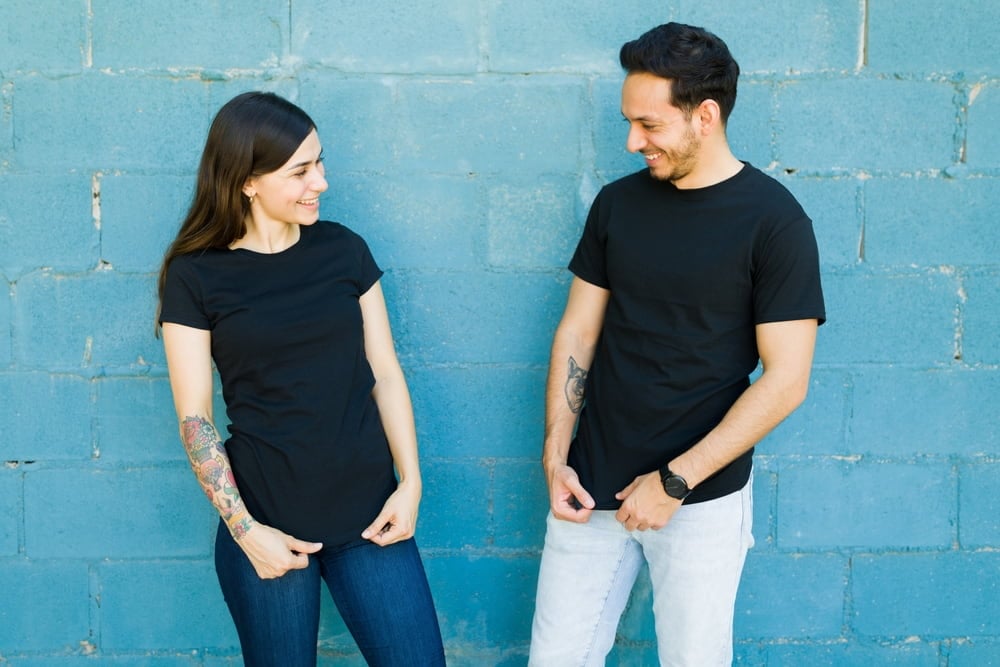Partners grow and change throughout their relationship and their personalities evolve over time. Romantic relationships are a big part of everyone’s life, so it’s only natural for them to shape people in major ways. Since you share so much of your experiences with your partner, developing in similar ways is common.
If you’d like to find out how your relationship can affect your personality, whether couples truly become more alike or different, and why this happens, read on. This may help you recognize unhealthy patterns in your or your partner’s behavior, such as avoiding intimacy in your relationship, and help you begin to work to establish a stronger connection.
Does Your Partner Affect Your Personality?
Yes, chances are that your partner will affect your personality, similarly to other people close to you. They’re a part of your everyday life and your close proximity could lead to unconsciously mimicking each other’s behavior. Your partner’s actions may also directly contribute to shaping your personality, both in positive and negative ways.

How Do Relationships Affect Personality?
Relationships could affect different aspects of your personality. When the influence is positive, it contributes to changing your unhealthy habits for the better. Your partner knows you very well and can spot unhealthy patterns you didn’t realize you had. They can also provide support in overcoming these issues.
People can often adjust their behavior based on their partner’s example. This can manifest itself in little things, such as eating healthier, or major ones, like having better control of your emotions. Being happily in love is often an excellent agent of change because the positivity can spill over into other parts of your life.
On the other hand, relationships may have detrimental effects on you as a person if they’re unhealthy. For example, having a jealous, overbearing partner can make a person more timid and insecure. Their anxiety may make their partner become withdrawn and feel cut off from the outside world. Unhealthy relationships often leave deep emotional scars, affecting the person’s self-esteem and making them vulnerable to further emotional abuse.
Prior to Pivot, I had been on both sides of that dynamic and it was not fun. And, that is an understatement. It was painful, confusing, depressing and affected my own self-esteem in ways that I describe in the #Healthy Adult book. The co-addictive tango dance of the overly anxious and avoidant individual in relationship is a pattern that we see a lot at our individual couples retreats. Interestingly enough, they are typically two people who love each other however the unresolved relational wounds and trauma of the past, keeps them repeating the patterns in their committed relationships. So, personalities are definitely affected. Read on…
Do Couples Become More Similar Over Time?
Both everyday experience and research suggest that long-time partners truly do become more alike. This also occurs with family members and close friends. This is not a negative however it is interesting to understand because overtime, resentment might surface and blaming each other for losing your individuality follows.
Being similar may happen in multiple ways, such as:
- Using similar mannerisms: People often imitate the body language of those they interact with. This is done unconsciously, to establish better rapport, gain the other person’s trust, and form a connection. It comes as no surprise that you’d mimic your partner’s gestures and facial expressions. This could make you seem more alike to the people around you.
- Having some of the same habits: Partners usually adapt their pre-relationship routines to the other person’s schedule and habits. For example, you may grow accustomed to eating and going to bed at the same time, especially if you live together. Because you consider these things as a unit, you’ll likely have the same plans for the weekend or the holidays, too.
- Saying the same phrases: You talk to your partner a lot, so you’re exposed to their speech patterns all the time. This inevitably leads to adopting some of the same sentence structures and other features of their way of speaking. What’s more, happy couples often have a well-developed language of their own, rich with inside jokes and idiosyncrasies. When you use these phrases around others, they may perceive you as more similar.
- Liking the same things: Your partner may introduce you to new things, which can alter your lifestyle in many different ways. For example, you may start having your morning coffee or eating your eggs differently. On a larger scale, as a result of their influence, you may change your social circle or rethink your career choice to be more in line with theirs.
- Having similar topics of conversation: Since you go through many experiences together, you probably have similar anecdotes to share. For example, because you go on vacation as a family, you’ll have visited the same places and met the same people. This means you’ll probably have similar stories to relate to your friends back home.

Why Do Couples Start Acting Alike?
You spend a lot of time together and share your most intimate visions of the world, so many of their interests, opinions, and character traits will probably rub off on you, and vice versa. For example, through discussing everyday situations, you may easily adopt their views and interpretations. This goes for everything, from how you see the people around you to how you interpret current events.
Also, together you go through many profound changes, such as moving or having children. These milestones often have a similar impact on both of you, making you more alike. In addition, your partner’s reactions to them may shape the way you perceive them as well. For example, if they adjust to parenthood smoothly, you’ll be more likely to adopt their relaxed attitude and take these changes in your stride.
Finally, your partner is someone you respect and admire. You may model your behavior based on this positive example they’re setting either consciously or unconsciously. For example, you may like the way they communicate with people, so you in turn become friendlier and more open than you used to be.
Again, this is good to have similarities however if you are feeling you are losing your own identity, you may want to find your way back to yourself. Like I shared above, if you are starting to get resentful, get help before you feel like the only way to return to self is to leave the relationship. And, that can be disruptive and create irreparable damage and unnecessary drama and trauma.
How Can A Comprehensive Codependency Workshop Help My Relationship?
PIVOT provides in-depth, personalized assistance to people struggling with codependency or another issue affecting their relationship and overall well-being. If you’d like to work on an aspect of your relationship, such as a lack of passion or the fact that you’ve stopped having fun together, you could join our couples workshops to work out suitable solutions. We also offer individual sessions to help you strengthen your relationship to yourself and others. Here you can discover your attachment style, pinpoint the things you need in your relationship, find out how to respond to conflict, learn how to spot hurtful behavior, like breadcrumbing, and much more. If you’re experiencing a specific issue in your relationship, like fantasizing about someone else, we can help you explore it. Give us a call today!